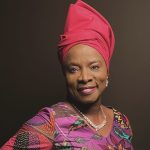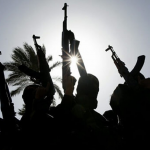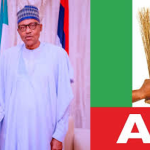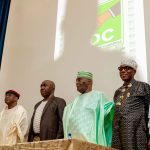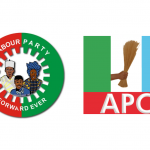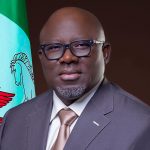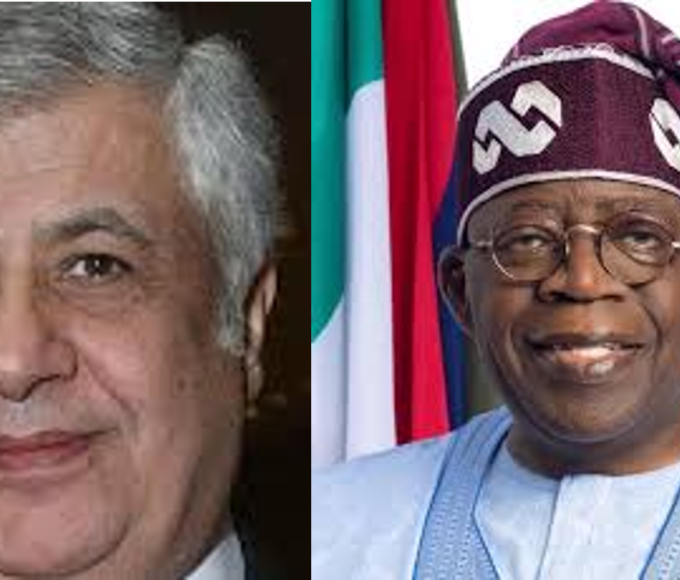
From Disappointment To Pain: Reflecting On President Tinubu’s First Year In Office
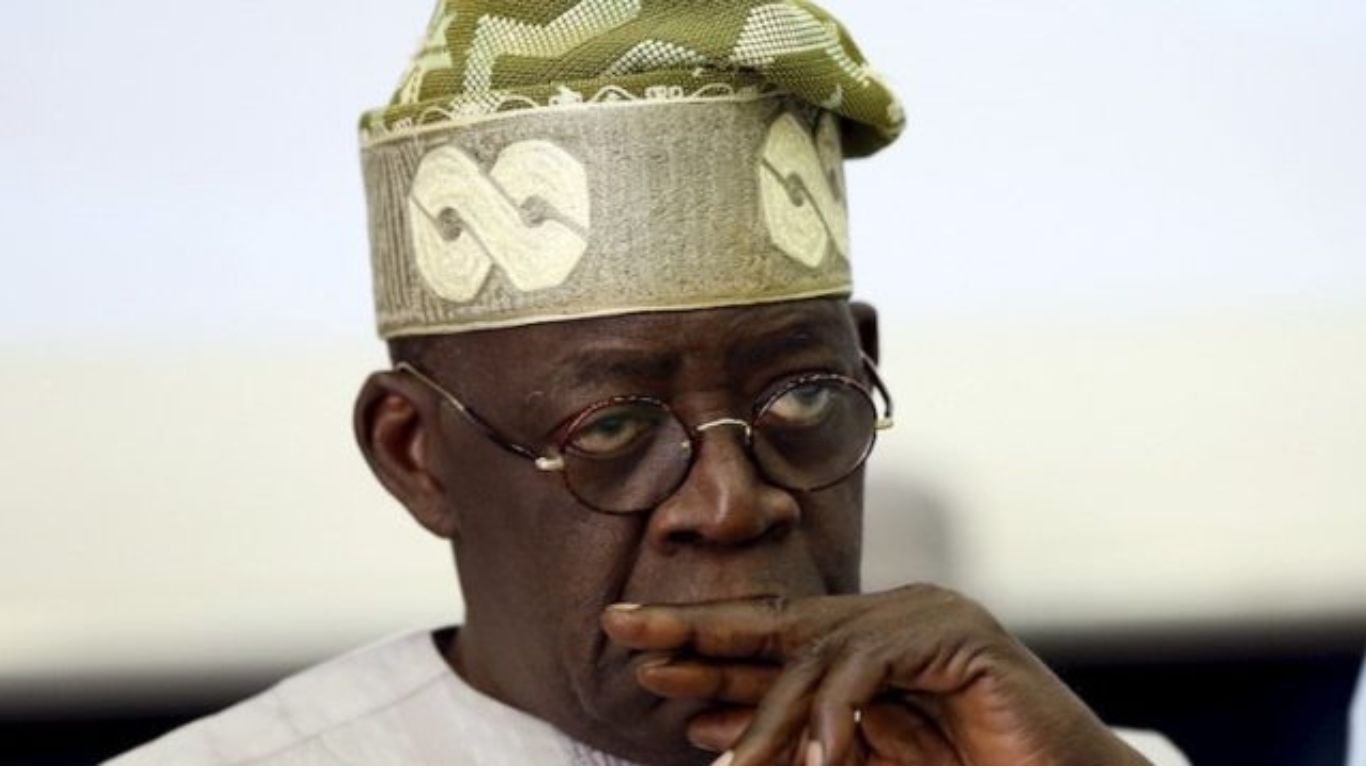
Aided by multiple electoral irregularities and unprecedented violations of electoral law, Bola Tinubu emerged “victorious” in the 2023 general election and was sworn in on May 29 2023. For one who won with an unprecedentedly narrow margin of less than two million votes, and was haunted by multiple controversies, Tinubu’s emergence was greeted with modest expectations regarding his ability to take Nigeria out of the abyss that his predecessor had sunk the country into. Nevertheless, his supporters and his purported 8 million+ voters welcomed his inauguration with ‘renewed hope, echoing his promises of a better Nigeria and fervently anticipated change.
As he marks one year in office, West Africa Weekly has reviewed the state of the nation under this administration, relying primarily on data and verifiable facts. The review has revealed a country in distress, with Nigerians grappling with economic hardships exacerbated by the government’s imposition of multiple insensitive taxes, surging food prices, a depreciating value of the naira, and escalating insecurity. The data explored for the review paints a sobering portrait of Nigeria.
First Day in Office, First Blow to the Common Man
President Tinubu’s first major decision in office was the removal of the controversial but popular fuel subsidy, which had benefited ordinary Nigerians for decades. “Fuel subsidy is gone,” he declared during his inaugural speech on May 29. Although the previous government had initiated steps towards its removal, Tinubu’s unexpected announcement of the complete abolition of the subsidy regime set off a series of unintended consequences, including a sudden surge in the prices of essential goods and services and long queues in filling stations across the country. Just the day before his inauguration, the pump price stood at N185, but today, it fluctuates between N600 and N900, with occasional shortages. There have been multiple unconfirmed reports that the Tinubu government has quietly reintroduced the fuel subsidy to steady the pump price.
Floating the naira Till it Sank
The Central Bank of Nigeria (CBN), under President Tinubu, has enacted various reforms in the foreign exchange market, particularly the introduction of a ‘willing buyer, willing seller market model’ within the Investors and Exporters (I&E) window. Although the CBN is an independent monetary regulator, the forex reform is in line with Tinubu’s decision to “float the naira”, unify both official and parallel rates, and subject the forex market to the forces of demand and supply. This reform expectedly resulted in the devaluation of the naira, which has continued to depreciate against the dollar and other foreign currencies since then. Since embarking on his floating policies, the value of the naira has sunk from N450/$ to around N1,600/$.
Data Shows Citizens Endure ‘Reduced Purchasing Power’
Meanwhile, the lingering repercussions of the fuel subsidy removal, the devaluation of the naira, and other economic policies of the Tinubu government, continue to afflict the Nigerian masses, manifesting in high inflation rates, heightened poverty levels, and a decline in living standards. According to the Nigerian Bureau of Statistics, the inflation rate has risen from 22.41% in May 2023 to 33.2% in April 2024. That is the highest since 1960. The past year has also been characterised by a rise in prices of everyday food items such as bread, cereals, oil and fat, potatoes, yam and other tubers, fish, meat, and fruit, as well as housing, health, education, and communication services. An NBS review of a year-on-year food inflation rate noted an increase from 24.35% in February 2023 to 37.92% in February 2024.
Additionally, the average daily cost of eating a healthy diet rose from N503 in May 2023 to N982 in March 2024. The masses bear all these economic burdens while the minimum wage remains N30,000. Labour unions have threatened to embark on an industrial action to force the government to agree on a new minimum wage.
Unemployment rate rises
As the economy faces instability, many small and medium-sized businesses are closing down while big corporations are either downsizing or leaving the country. This has resulted in a noticeable spike in the unemployment rate. Statistics from the NBS indicate a notable increase in unemployment from 4.2 per cent in Q2 2023 to 5 per cent in Q3. Moreover, the data highlights a concerning trend of heightened unemployment among young Nigerians, with youth unemployment escalating from 7.2 percent in Q2 to 8.6 percent in Q3.
Insecurity reigns
Tinubu inherited a near-failed state characterised by daily kidnappings and killings of citizens, free reign of terror by both state and non-state actors, and the displacement of millions. During former president Muhammadu Buhari’s 8 years in power, Nigeria experienced an average of 1,468 violent incidents per year, according to an analysis by HumAngle Media, using data compiled by the Nigeria Security Tracker (NST) and the Armed Conflict Location & Event Data Project (ACLED). Also relying on NST data, another report noted that over 63,000 Nigerians were killed in violent incidents under Buhari’s administration.
When he was sworn in as President, Tinubu vowed to end insecurity in Nigeria. The situation however, remains unchanged, with killings, abductions, and terror still rampant. Data from the ACLED database indicates that at least 7,500 people have been killed in various violent incidents between June 2023 and April 2024. One year into Tinubu’s administration, the life of an average Nigerian remains precarious.
Press Freedom Under Attack
As if the economic hardships and insecurities are not enough for Nigerians to stomach, Tinubu’s administration adds insult to injury with its flagrant disregard for democratic principles, such as freedom of expression. An analysis by West Africa Weekly earlier this month showed that no fewer than 13 journalists have been harassed or illegally arrested under Tinubu’s Watch in less than a year. In addition to the list, another journalist was abducted by armed Police officers last week. It is surprising to many Nigerians that such could be happening under a president who purports to have been “democratically elected.”
Nigeria’s Disastrous Foreign Policy
In December last year, the Tinubu government unveiled what it called the 4-Ds foreign policy, which is anchored on strengthening four strategic pillars – democracy, development, demography, and diaspora affairs in Nigeria and on the African continent. Unveiling and articulating the 4D foreign policies, the Minister of Foreign Affairs, Yusuf Maitama Tuggar, stated that the Tinubu’s Administration was committed to upholding and strengthening democracy and democratic institutions in Africa as the best form of government. He noted the government’s concern about the unconstitutional changes of democratically-elected governments in some African countries.
Tuggar further stated that development was the second key component of the foreign policy document, noting that it would be pursued by ensuring the removal of impediments to growth and development for Nigeria and Africa generally by leveraging the African Continental Free Trade Agreement (AfCFTA) “to facilitate the exchange of goods and services while fast-track trade and investments, through economic cooperation, fair trade, global health initiatives, stable and transparent global governance, building capacity for entrenching sustainable socio-economic development.”
On Demography, the Minister said Tinubu’s administration, through its foreign policies, would “harness the enormous power of Nigeria’s vibrant young people for national development.” Regarding the last strategy, the government would ensure that the Nigerian diaspora community continues to play a key role in national socio-economic development.
It is fair to say that the entire foreign policy document is an inconsequential collection of grandiose words that fail to improve Nigeria’s image in the global community. Notably, Nigerians remain banned from entering the United Arab Emirates despite a personal visit by Tinubu. At the same time, the UAE is set to resume its Emirates airline operations in Nigeria.
Rather than act in a manner befitting of an ambitious regional hegemon seeking to preserve its economic and political sphere of influence, Nigeria under Tinubu has been reduced to acting as a client state of Western powers struggling to dominate the Sahel region. Under Tinubu’s leadership, Nigeria threatened then attempted a illegal military invasion of Niger – traditionally one of Nigeria’s closest diplomatic partners. As ECOWAS Chairman, Tinubu has displayed zero understanding of the delicate dynamics of the West African subregion, eschewing any attempt at negotiation and statesmanship in favour of multiple failed attempts to lead a military coalition into Niger to restore the deposed president Mohamed Bazoum.
Tinubu’s incredibly ill-thought, rushed and pathetic decision to violate the Niamey Treaties and cut off electricity supply and trade access to Niger at the instance of French President Emmanuel Macron, resulted in unprecedented retaliatory measures from Niger, ultimately leading to the breakaway formation of the Alliance of Sahel States (AES) from the ECOWAS bloc. Only then did Tinubu stand down the ridiculous sanctions that he unilaterally imposed on Niger – proof in itself that not a scintilla of strategic thought went into them. Worse still, in order to obtain insurance against any such future brain farts from Tinubu, the Nigerien government subsequently entered into a military alliance with Russia.
In other words, Tinubu’s first significant foreign policy decisions as president resulted in the destruction of West Africa’s 49 year-old regional bloc and – for the first time in Nigeria’s history – the existence of an enemy state backed by a nuclear power right on Nigeria’s border. From being a nation at peace with all its neighbours since independence, Tinubu has somehow turned Nigeria into a playground bully whose pathetic attempt to grab the little kid’s lunch money has resulted in being slapped down contemptuously by the little kid, followed by the deployment of Russian surface-to-air missiles across the 1,000km+ of border that Nigeria happens to share with Niger.
There is no doubt that President Tinubu’s scorecard after one year is nothing short of abysmal. His policies have exacerbated Nigeria’s socio-economic woes, and his numerous promises remain unfulfilled. Removing the fuel subsidy and introducing multiple taxes and tariffs have led to soaring prices and widespread hardship while the naira continues to lose its value. Insecurity persists, with no notable progress in curbing violence, killings and abductions. Rather than renewed hope, his administration has delivered pain and disillusionment to the Nigerian masses. One can only wait to see if President Tinubu will manage to turn things around in the next three years. On the evidence of the first year, no breaths are being held.
Read; Reactions As Delta Gov. Oborevwori Host Praise and Worship Midweek to Celebrate First Year in Office
About The Author
Related Articles
The APC Effect: 10 Years That Crippled Nigeria’s Economic Future
A decade after the All Progressives Congress (APC) came to power on...
ByWest Africa WeeklyJuly 3, 2025Atiku, Obi, El-Rufai, Others Adopt ADC as Coalition Platform Ahead of 2027 General Elections
A coalition of opposition figures, including former Vice President Atiku Abubakar, ex-Kaduna...
ByOluwasegun SanusiJuly 3, 2025Gilbert Chagoury: The Convicted Money Launderer Behind Tinubu’s Global Image and Domestic Ambitions
As President Bola Tinubu’s administration deepens its grip on Nigeria’s public institutions,...
ByWest Africa WeeklyJuly 2, 2025Opinion: Their Tribal Loyalties Are Stronger Than Their Sense of Common Nationhood
A REVIEW OF LEE KUAN YEW’S FROM THIRD WORLD TO FIRST Regarding...
ByGbọ́láhàn AdébíyìJuly 1, 2025


